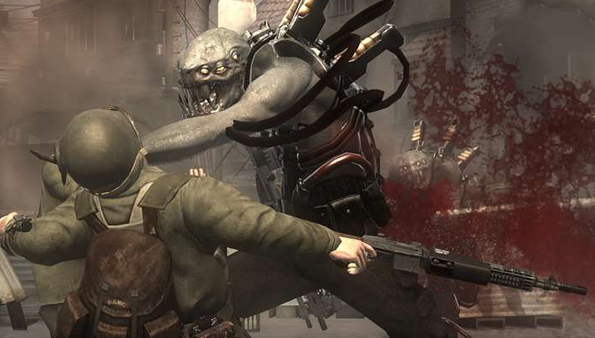Sony's PSN Pass Latest Tech To Block Secondhand Sales
A few weeks back, we covered Capcom's decision to limit Resident Evil:
Mercenaries 3DS to a single save-game slot. That move was widely
condemned as an attempt to hamper the game's attractiveness on the
second-hand market, despite Capcom's assurances that being unable to
restart the title and log their own achievements wasn't something
players would care about. Sony has also opted to pounce on this
particular bandwagon.
The company has stated that it will include a single-use "PSN Pass" code with certain upcoming titles, beginning with Resistance 3. Sony has yet to explain exactly which features the code activates but notes that "full online access" is only available if a code is given. Ars Technica further reports that anyone who buys the game used will be able to reset the title--but not without paying a nominal fee. As that site points out, Sony previously charged secondhand SOCOM 4 buyers an additional $15 to buy "Socom Pro." In that case, however, the "Pro" package contained entirely optional features.
Sony characterizes the move as "an important initiative as it allows us to accelerate our commitment to enhancing premium online services across our first party game portfolio." In a previous Gamasutra interview, SCEA PR VP Rob Dyer told the site: "I am a big believer in encouraging the gamer to have a reason to hold onto [a game] and to continue to play, and for the publisher to be able to see something if there is a second sale," Dyer said, "because right now, for years, as a publisher, we saw nothing [from used sales]."

As we've previously mentioned, we think game developers have a genuine bone to pick with the used games market. Sony's Socom Pro approach is, in our opinion, a much better method of addressing the problem than the route Capcom took with--but Sony itself hasn't yet clarified if PSN Pass codes will be used to lock away extra features and add-ons, or fundamental aspects of online play.
The long-term solution, at least as far as physical copies are concerned, is some sort of revenue sharing agreement between resellers and publishers. We're willing to acknowledge that publisher solutions that only ask used game buyers to pay for optional content are better than those that refuse to let them save games at all, but gamers are still the ones being penalized. There doesn't need to be a penalty at all--as much as companies like GameStop may not want to share the wealth, it may be in their own long-term best interest to do so.
The company has stated that it will include a single-use "PSN Pass" code with certain upcoming titles, beginning with Resistance 3. Sony has yet to explain exactly which features the code activates but notes that "full online access" is only available if a code is given. Ars Technica further reports that anyone who buys the game used will be able to reset the title--but not without paying a nominal fee. As that site points out, Sony previously charged secondhand SOCOM 4 buyers an additional $15 to buy "Socom Pro." In that case, however, the "Pro" package contained entirely optional features.
Sony characterizes the move as "an important initiative as it allows us to accelerate our commitment to enhancing premium online services across our first party game portfolio." In a previous Gamasutra interview, SCEA PR VP Rob Dyer told the site: "I am a big believer in encouraging the gamer to have a reason to hold onto [a game] and to continue to play, and for the publisher to be able to see something if there is a second sale," Dyer said, "because right now, for years, as a publisher, we saw nothing [from used sales]."

As we've previously mentioned, we think game developers have a genuine bone to pick with the used games market. Sony's Socom Pro approach is, in our opinion, a much better method of addressing the problem than the route Capcom took with--but Sony itself hasn't yet clarified if PSN Pass codes will be used to lock away extra features and add-ons, or fundamental aspects of online play.
The long-term solution, at least as far as physical copies are concerned, is some sort of revenue sharing agreement between resellers and publishers. We're willing to acknowledge that publisher solutions that only ask used game buyers to pay for optional content are better than those that refuse to let them save games at all, but gamers are still the ones being penalized. There doesn't need to be a penalty at all--as much as companies like GameStop may not want to share the wealth, it may be in their own long-term best interest to do so.

